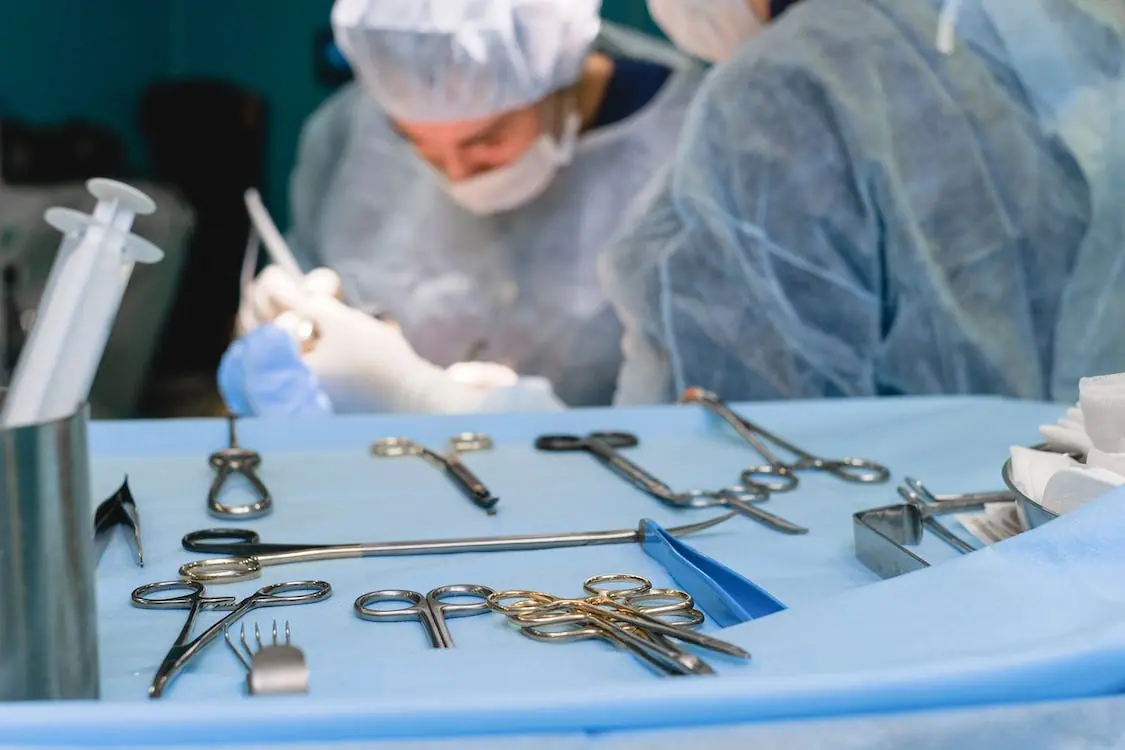
8 Things to Consider Before Opting for a Nose Job
Are you considering a nose job? Also known as rhinoplasty, this cosmetic procedure can enhance facial harmony and improve self-confidence by reshaping the nose.
However, before embarking on this transformative journey, it is crucial to consider several factors. Deciding to undergo a nose job is a significant decision that requires careful thought and consideration.
This article will explore the essential things you should consider before opting for a nose job. By understanding these factors, you can make an informed decision and ensure the best possible outcome for your desired nasal transformation.
1. Your Goals & Motivation
Before going under the knife, take some time to reflect on what you hope to achieve through a nose job. Is it purely aesthetic, or are there functional issues as well? Do you want a subtle change or a more dramatic transformation? Understanding your goals will help you communicate effectively with your cosmetic surgeon.
Also, take some time to understand why you’re considering a nose job. Do you want to do it for yourself or to meet societal beauty standards?
Remember, cosmetic surgery should be a personal decision to enhance your self-esteem and well-being rather than conforming to external expectations. Ensure your motivations align with your desires, and seek the procedure for the right reasons.
2. Thorough Research
Rhinoplasty encompasses various surgical techniques and approaches, each with advantages and considerations. Researching different techniques allows you to understand the differences between open and closed rhinoplasty, piezosurgery, nasal tip refinement, and other procedures. This knowledge enables you to have more informed discussions with your surgeon about the most appropriate technique for achieving your desired outcomes.
Hence, take the time to research and educate yourself about wide nose rhinoplasty. Learn about the surgical process, potential risks and complications, recovery period, and the expected results. Remember to gain insight into different doctors’ qualifications and reputations and seek recommendations from trusted sources.
3. Realistic Expectations
Having realistic expectations about the outcomes of a nose job is crucial to its success. While advancements in surgical techniques are remarkable, there are limits to what can be achieved. Consult with a qualified and experienced surgeon who can assess your facial structure and discuss the realistic possibilities and limitations of the procedure.
A clear understanding of the result can help you articulate your goals and concerns more accurately. This dialogue helps your surgeon develop a personalized surgical plan that aligns with your expectations and ensures a better understanding of the results. Also, having a realistic outlook helps manage emotional well-being during recovery. It allows you to appreciate the improvements achieved, even if they may be subtle.
4. Consultation with a Qualified Surgeon
Every person’s nose is unique, and their desired outcomes and concerns may differ. A consultation allows the surgeon to evaluate your specific needs and understand your goals for the procedure. This personalized assessment forms the foundation for creating a tailored treatment plan that addresses your concerns and achieves the desired results.
Schedule consultations with multiple plastic surgeons who specialize in rhinoplasty. During these consultations, openly discuss your goals, concerns, and expectations. A skilled surgeon will assess your facial structure, discuss options, and provide a personalized treatment plan.
Take the opportunity to ask questions and evaluate the surgeon’s expertise, credentials, and previous results.

5. Understanding the Risks
Like any surgical procedure, rhinoplasty carries inherent risks and potential complications. These can include bleeding, infection, adverse reactions to anesthesia, scarring, or unsatisfactory aesthetic outcomes. It is essential to thoroughly understand these risks and have a candid conversation with your surgeon.
Information on the risks helps you anticipate and manage the recovery and healing process. You can better understand the potential side effects, such as swelling, bruising, or discomfort, and know how to handle them. Understanding the potential risks also enables you to recognize any signs of complications early on, allowing for timely intervention and appropriate medical attention.
6. Time for Recovery
Rhinoplasty involves a recovery period during which you may experience swelling, bruising, and discomfort. Understand the time required for healing and factor it into your lifestyle and commitments. Consider the impact on your work, social engagements, and daily activities.
The recovery period may also require adjustments to promote healing and optimize results. These adjustments may include avoiding strenuous activities, refraining from certain sports or exercises, following a specific diet, and practicing good hygiene. By considering the recovery process, you can plan and make the necessary lifestyle adjustments to support a smooth and successful recovery.
7. Emotional Readiness
Emotional readiness allows you to cope with physical changes and adapt to your new appearance. It enables you to develop healthy coping strategies, seek emotional support if needed, and maintain a positive self-image during the recovery and adjustment period.
Be prepared for potential shifts in self-perception, body image, and personal identity. Take the time to reflect on your mental preparedness for the procedure, ensuring that you have a strong support network to help you through any emotional ups and downs that may arise. This can include family, friends, or a therapist who can provide emotional support and guidance throughout the rhinoplasty journey.
8. Financial Considerations
Evaluate your financial situation and determine if you can comfortably afford the procedure. In addition to the surgery’s actual cost, additional expenses may be associated with the recovery period. These include medications, post-operative garments, transportation costs for follow-up visits, and any necessary time off work. Considering these additional expenses helps you anticipate and plan for them, ensuring you can comfortably manage the financial aspects of the procedure and the recovery time. You can assess whether the potential benefits of the surgery align with your financial priorities.
Read More: Roads to Recovery – Eight Tips to Expedite the Process of Healing
Conclusion
Remember, a nose job is a personal decision that should be made after careful consideration and thorough evaluation. Take the time to understand your goals, and set realistic expectations. Doing this will ensure the result satisfies you. Moreover, do not believe that a nose job will solve all issues related to your physical insecurities. You might still have to work on that by practicing self-compassion and confidence.
With the above knowledge and thoughtful introspection, you can make an informed decision that aligns with your goals and well-being.

